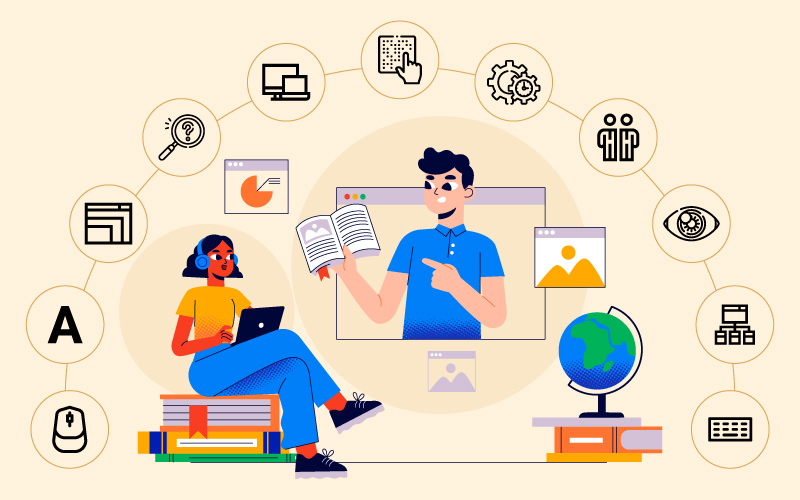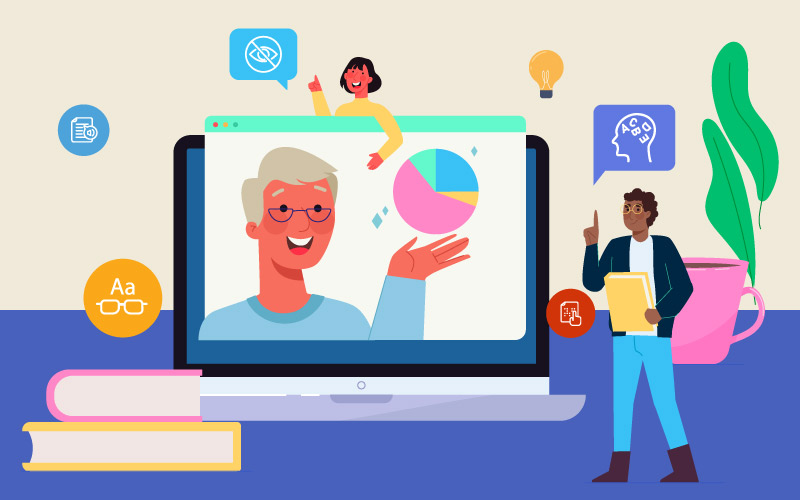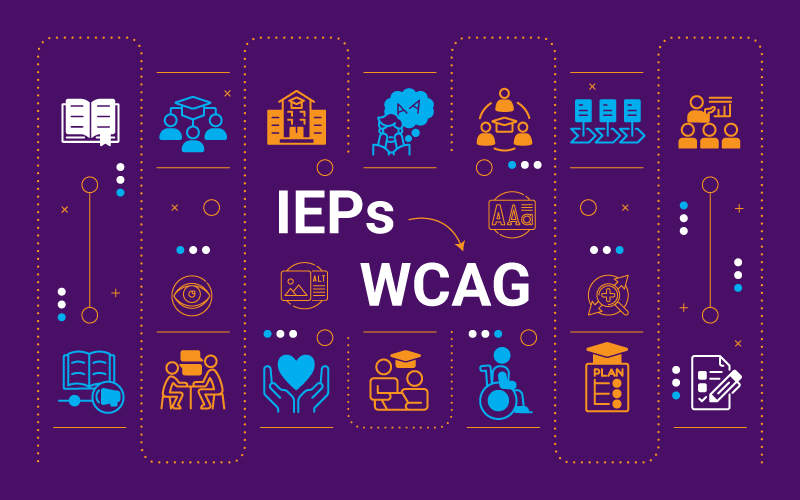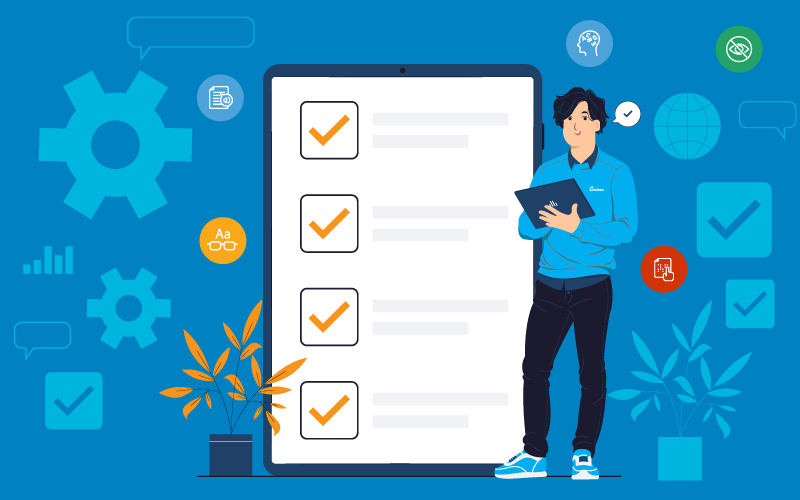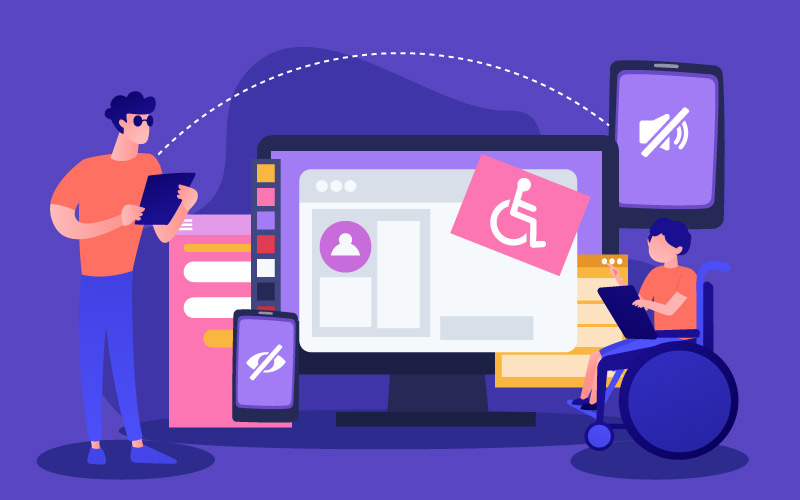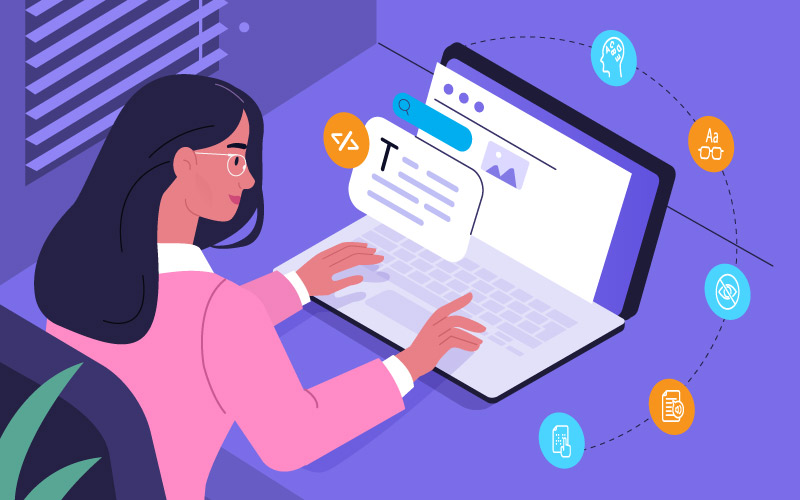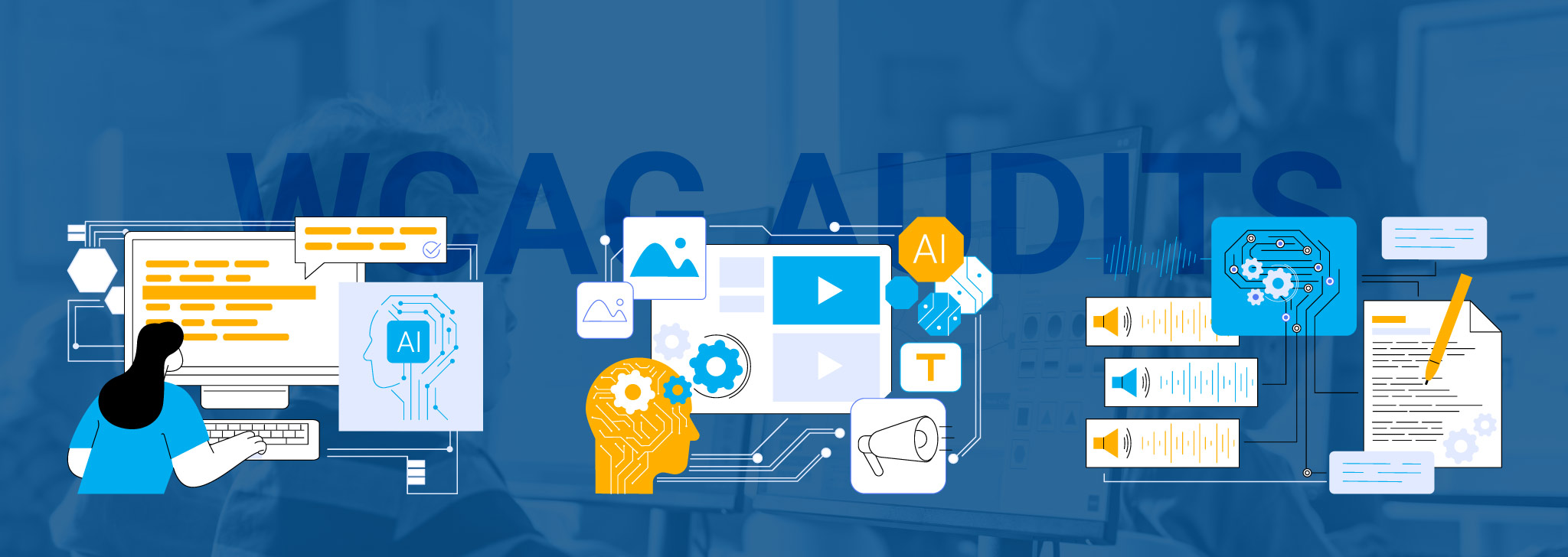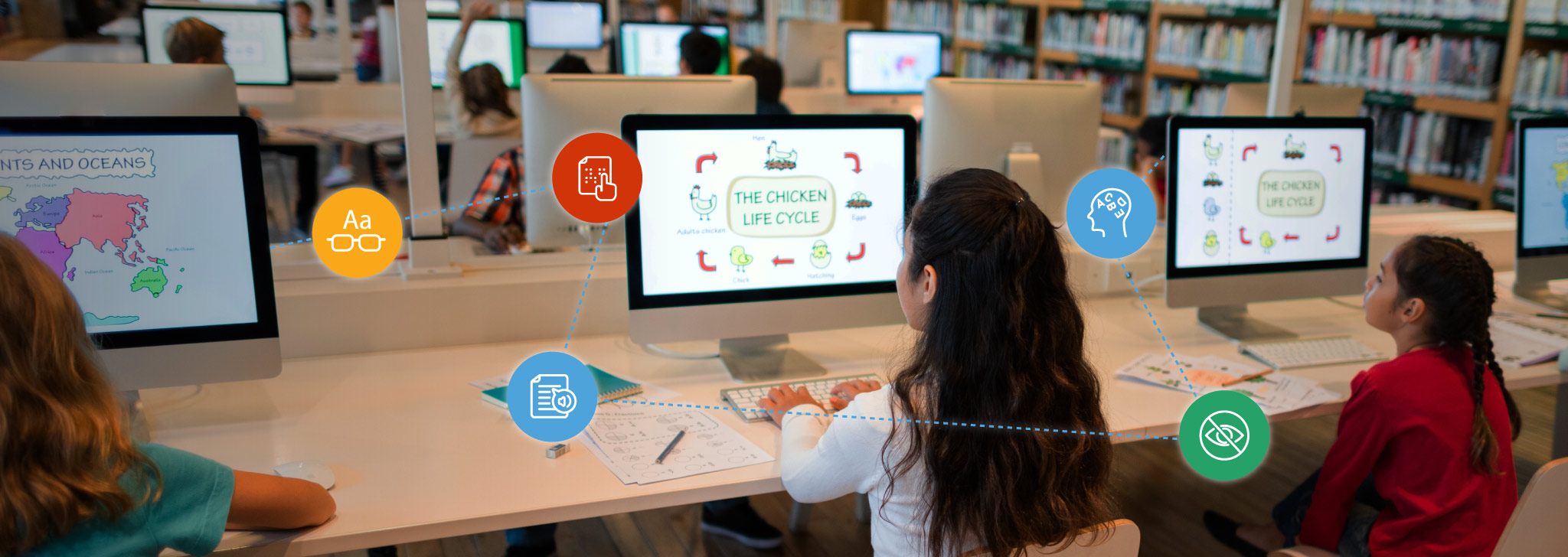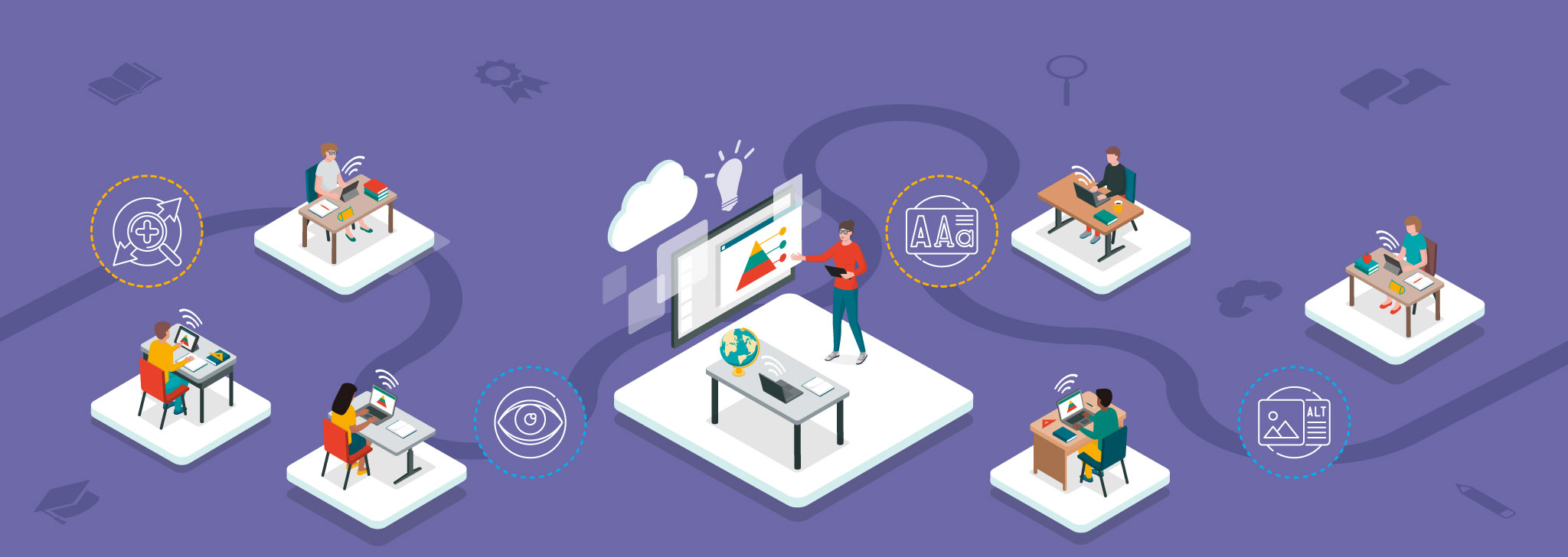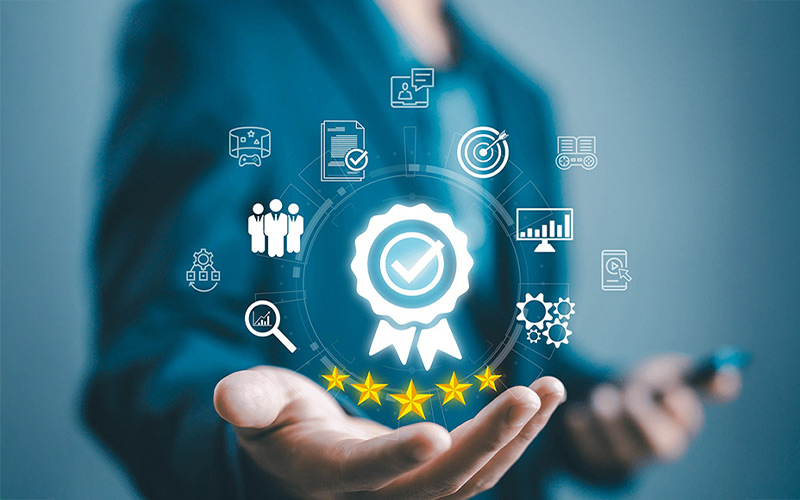Future-Proofing K–12 Education with WCAG 2.2 and AI Accessibility
As K–12 classrooms embrace digital transformation, future-proofing content with WCAG 2.2 and AI-driven tools is essential. This blog explores how educators and schools can align with evolving accessibility standards, harness AI for inclusive design, and stay compliant with global regulations. From AI captioning to alt text automation, discover the opportunities and challenges of building accessible, tech-forward learning environments.
Training Educators as WCAG Champions
With digital learning now a core part of K–12 classrooms, training educators in WCAG and inclusive design is critical. This blog explores how schools can equip all teachers—not just content developers—with accessibility skills through professional development models like microcredentials, workshops, and mentoring. Learn how to embed accessibility into school culture and empower educators as true WCAG champions.
Translating IEPs into WCAG-Aligned Digital Accommodations
Bridging the gap between IEPs and WCAG standards is essential for inclusive digital learning. This blog explores how to convert individual education plans into accessible digital accommodations that align with WCAG 2.1 AA. With global insights, examples, and a practical mapping of supports to guidelines, it offers educators and tech teams a clear roadmap for equitable K–12 eLearning environments.
The Vendor Selection Playbook: WCAG as a Non-Negotiable
Selecting the right eLearning content vendor is pivotal for inclusive K–12 education. This blog offers a practical, WCAG-centered playbook for school districts to evaluate vendors using VPATs, legal frameworks, and accessibility checklists. Learn how to embed WCAG 2.1 AA into every step of procurement—from RFPs to contracts—ensuring your content is compliant, equitable, and future-ready.
Assistive Tech & WCAG: Bridging the Gap
Assistive technology is revolutionizing digital learning, but without screen reader compatibility and WCAG adherence, many K-12 learners are still left behind. This blog explores how integrating assistive tech with WCAG standards bridges the accessibility gap, especially in the US, UK, Europe, and emerging regions like APAC and the Middle East. Get insights, tools, and practical steps for inclusive K-12 eLearning.
Accessible eLearning Design: WCAG by Default
Designing accessible eLearning from the start—rather than retrofitting later—is essential for K–12 schools. “WCAG by default” ensures digital content meets global accessibility standards, improves learning outcomes, and avoids legal risks. This blog explores the benefits, global mandates, and practical strategies for embedding WCAG compliance into content creation workflows from day one.
Step-by-Step WCAG Audits for Existing eLearning Content
Ensuring digital accessibility in K–12 education isn’t just a best practice—it’s a legal requirement. This blog demystifies WCAG compliance for schools, helping administrators, educators, and technology teams understand the legal frameworks, common challenges, and actionable strategies. Learn how to align your digital content with the law and create a more inclusive learning environment.
Demystifying Legal WCAG Compliance for K-12 Schools
For K–12 schools, ensuring digital accessibility is both a legal mandate and an educational responsibility. This blog demystifies WCAG compliance, explaining what it means, why it matters, and how schools can implement it effectively. Learn about key laws like ADA and Section 504, get clarity on common myths, and explore a practical approach to make digital learning truly inclusive.
The Ultimate K-12 WCAG Implementation Roadmap
In today’s digital-first K–12 learning environments, accessibility is a legal mandate and moral imperative. The Ultimate K-12 WCAG Implementation Roadmap simplifies applying WCAG 2.1/2.2 AA across curricula, platforms, and vendors. Through four actionable pillars—Perceivable, Operable, Understandable, Robust—plus legal guidance and ROI insights, schools can unlock inclusive, effective eLearning for all students.
The Future of Credentialing: Micro-Credentials and Digital Badges
Micro-credentials and digital badges are transforming education and workforce development. These stackable, industry-aligned certifications validate specific skills faster and more affordably than traditional degrees. This guide explores their design, challenges like standardization, and future trends including AI personalization and micro-degrees. Discover how institutions can leverage these tools within custom eLearning frameworks to empower lifelong learning and meet evolving workforce needs.


